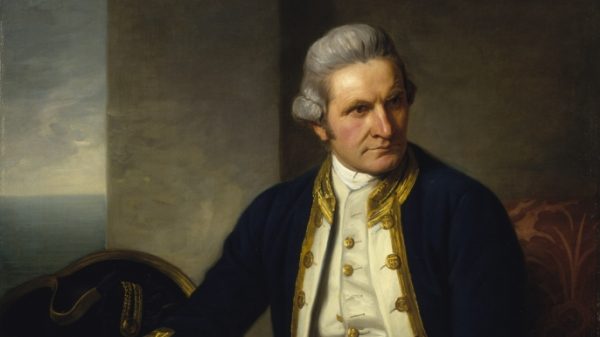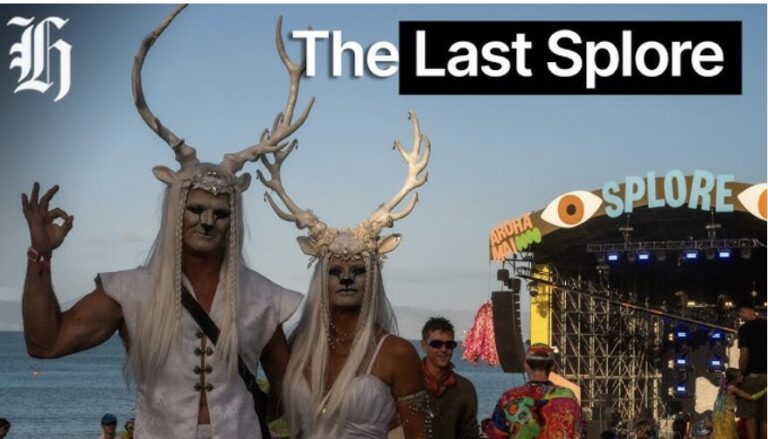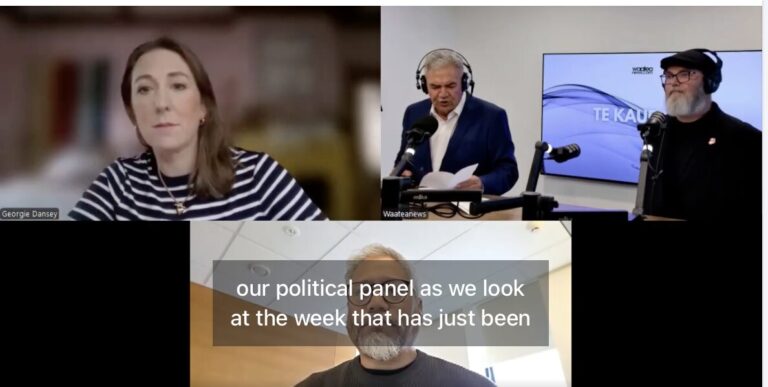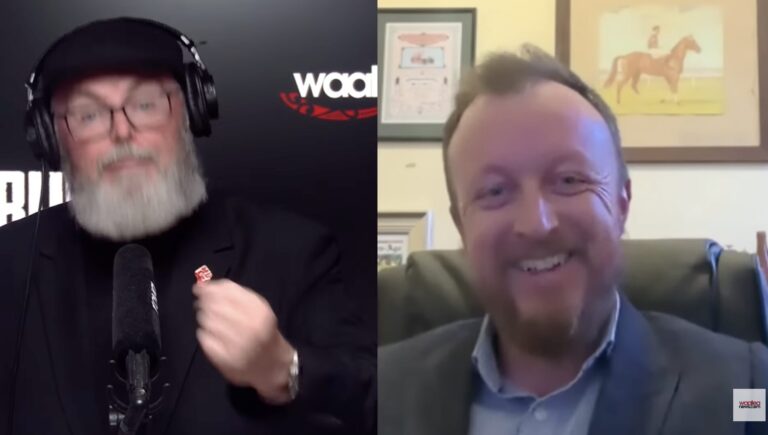GUEST BLOG: Tina Ngata – A Crook By Any Other Name: Celebrating Cook

Well there goes another February 14th. Evenings of whimsical sighs, chinking champagne glasses, and adoring compliments across the Pacific as indigenous folks send their thanks out to the Hawaiian cousins that took care of business, and finally put an end to the diseased, kidnapping, murderous, thieving invader called Captain James Cook.
In case your needle just scratched reading that last line – February 14th is indeed the date that Captain Cook met his untimely demise, in Kealakekua Bay, Hawai’i, at the hands of the locals, who, to this day, don’t regret it one bit, and in fact are pretty dang proud of it. They like to remind us cousins here in Aotearoa that it was them who took care of business, and us who failed to halt the man who would travel from island to island, kidnapping people to get what he wanted, killing them if they resisted, stealing whatever he liked, and knowingly spreading devastating STDs. Increasingly, indigenous peoples across the Pacific and further afield are preferring to celebrate his death rather than the consumerist, manipulative, shallow interpretation of love day that is commonly called Valentines Day. Of course within the Pacific we have very immediate reasons for celebrating an indigenous victory over imperialism, but even further afield, indigenous peoples living under colonial rule understand what it is to have an invader be hailed as a hero. In general, we understand how it hurts to remain, under an imposed system that places their reality at the centre and ours at the fringe – determining the flow of privilege. Many of us know how it feels to work overtime, on top of our jobs, to heal ourselves and our families and communities from the impacts of that system – striving for opportunities to hold on to who we are and celebrate it – while our colonial counterparts are generously funded to celebrate who they are.
It’s not uncommon, in the indigenous community, for our colonisers to insist on celebrating their arrival – it validates their presence and helps them to feel more comfortable about historical events that create the privilege they benefit from today. In the USA, Columbus Day is still being clung to in some 30 states, in spite of the fact that it is now well known that he massacred over 250,000 indigenous people, spread devastating diseases, fed natives to dogs and sold native women and children into sex slavery. Did it shape them as a people? Undoubtedly – genocide will do that. Does that make them want to re-enact it or celebrate the man himself? Never.
So when we see the NZ government committing millions of dollars to hire the Endeavour to sail around Aotearoa, re-enacting Cook’s arrival – well, for many of us, it hurts. Not in a shocking way, more of a “here we go again can you please stop bashing us with your colonial privilege” kinda way.
Before anyone starts pulling up the reins in belief that Cook was a hero, a scientific astronomer that wanted to follow the Transit of Venus, had the very best of intentions, held indigenous people in high regard, and held his men in check – following some kind of 18th century prime directive to “only do good” and certainly not engage in sexual relations… consider the following few facts:
In the first journey alone – Cook murdered indigenous peoples in Tahiti, Society Islands, New Zealand, Australia, and Java. His campaign of murder, abduction, and theft (and, if you count the conscious spreading of disease, acts of biological warfare), continued throughout voyages 2 & 3.- Not only did Cook kill two local Maori from Rongowhakaata on the shore within hours of landing here in Turanganui a Kiwa (Gisborne) – but upon leaving the bay he attempted to steal a fishing vessel, and when the inhabitants attempted to flee, or defend themselves by throwing rocks, he ordered them shot and killed, and abducted the remaining three young boys against their will.
- The primary reason for Cook’s first voyage was not to track the Transit of Venus – it was to “discover” Terra Australis (the supposed great southern continent that included New Zealand and Australia) – and claim the land, and it’s riches, for the British Crown – it was imperial expansion, with an astronomical cover story tacked on.
- At the time of his killing, Captain Cook was dying of syphilis, (which he did not contract from his wife). Crew members report that sex with locals (and girls as young as 9) was very common, a form of recuperation after long stretches at sea, and indigenous accounts note that Cook was not an exception in this case, having bedded down with the Hawaiian Lele-mahoa-lani (which he would have done so in full knowledge of his own disease).
- Captain Cook elected to go ashore on the day he was killed, with the intent of violence, and abduction of their chief, because, in his words, “they must not be left to imagine that they have gained an advantage over us.”
For all of these reasons and more, indigenous communities across the Pacific (and certainly here in Aotearoa) are not in a hurry to revere him or his exploits.
Not that you’d know this from those involved in the organising of 2019. Te Hā Sestercentennial Trust – charged with co-ordinating the Cook Commemorations – has bent over backwards to present themselves as the very epitome of “dual heritage” and biculturalism. Yet it’s clear that the idea to hold these commemorations did not originate from Maori, and not one iwi have, to date, officially come out to endorse or support the event.
Te Ha’s position is that the event holds “the potential to redress some of the still poignantly-felt hurt of the past in regions where the indigenous voice has struggled to be heard, and to create a place of integrity from which we could truly honour our dual heritage and create our shared future”. Yet that potential does not seem to extend to acknowledging the historical position of Rongowhakaata – the iwi who were primarily impacted upon by this event, whose men were murdered on the beach, and whose youths were kidnapped. Rongowhakaata who have always refused, as an iwi, to take part in such events. Surely that alone deserves consideration – the iwi who inhabit “ground zero” of the landing views this as a painful, traumatic, and uninvited exercise. Who is anyone to place their interests before them?
Well, Te Ha Sestercentennial Trust, apparently. Trust Chair Richard Brooking maintains that “We remain steadfast in our belief that this anniversary deserves to be commemorated — respect shown to those whose lives were lost, and honesty and maturity shown in openly discussing the consequences, good and bad, of the arrival of the Endeavour.” Evidently that respect doesn’t extend to acknowledging the dissent of the primary victims. Nor does the honesty extend to Te Ha providing a transparent account of iwi/hapu endorsement.
There is something particularly arrogant about forcing people to relive a traumatic event, and telling them it will heal them. Something truly offensive in assuming to provide an opportunity for the indigenous voice all the while ignoring their very clear expressions. We have been telling our truths, politically, artistically, and educationally, for a long time, and labelled haters and wreckers for it – yet now we are told that THIS magnanimous gesture will provoke a conversation. Waitangi Day remains a day that is characterised as brown folks ruining the national pride day – and pakeha entitlement extends to the sacred marae atea of Te Tī. Our most prestigious arts festival Te Matatini receives less than a third of what the Cook Commemorations will receive, a quarter of what the Royal Ballet receives, and less than a tenth of what the Royal Orchestra receives. Yet we are told that this is our opportunity to address inequity. There is also something damned confusing about being told by our treaty partner to “move on” when we want to talk about land theft and the social, physical, spiritual and emotional legacy of colonisation, but then being forced to live in the past not for a day, or a month, but for a year.
We don’t need your event to have this discussion. We’ve been driving it already for a long time, waiting for you to come to the table. We’ve had enough of tokenistic gestures and talk about working together, when such huge socio-economic gaps persist between Maori and Non-Maori. Give US the millions to build our houses, grow our economy, repopulate our tribal lands and continue to tell our truths, in the way that we know how. How about we just take the shortcut, and you show us how much you value us by funding our culture equitably.
In short, get out of our way and let us get about the business of healing. Believe me, we’ve much more practice in it than you.
BIO: Tina Ngata (Ngati Porou) works for indigenous university Te Wananga o Aotearoa as a diploma and degree-level educator in indigenous environmental leadership. She lives in Te Tairawhiti and blogs underneath the name “The Non-Plastic Maori” about issues relating to indigenous rights and environmental issues.







So glad to see lots of comments adding some balance to this biased article.
go read the transcripts for meetings with tribes before the treaty signing
lots of begging for protection from being clubbed to death, enslaved or eaten by small tribes whose lives barely lasted 35 years due to complete lack of medicine (when sick patients were dragged outside and left to what may come) being attacked by stronger tribes
read about the massacres at Rototai and wainui bay by north tribes butchering their way through locals
the latter location is tapu to this day and no Maori will step foot on that land.
all facts which can be acessed by anyone at national archives, actual transcripts of Maori begging for protection
but hey captain cool shot a few inocent people
what a bastard ay
Danny, if you want real efficiency at mass-killing, I point you in the direction of Europe, in the first half of the 20th century. Two worlld wars; millions slaughtered; assembly-line extermination of Jews.
When it comes to tribal warfare, Europe had it sussed.
Now. You were saying?
It was only a matter of time.
If it had not occurred under Cook , it would have under another seafaring country. And the longer it was put off , the more severe things might have been…
The French
The Americans
The Spanish
The first two who were already sizing up these lands.
Country’s that had no qualms at all about exerting their dominance , – and using force and genocidal tactics if necessary to achieve their ends in that era . I have no great reverence for Cook ,… but then again , .. I find much of your biased and one eyed account of history typical of so many revisionists of the post Douglas neo liberal era.
For every ‘ fact ‘ you quote there is always another side of the story untold.
What was the ship boarded and its occupants massacred and where ?
Boyd massacre – Wikipedia
https://en.wikipedia.org/wiki/Boyd_massacre
” The Boyd Massacre occurred in December 1809 when Māori residents of Whangaroa Harbour in northern New Zealand killed and ate between 66 and 70 Europeans.[1] This is reputedly the highest number of Europeans killed by Māori in a single event in New Zealand, and the incident is also one of the bloodiest instances of cannibalism on record. The massacre is thought to have been in revenge for the whipping of a young Māori chief[2] by the crew of the sailing ship Boyd.”
And now,… we have the other side of the tit for tat account :
”In retribution,[3] European whalers attacked the island pa of chief Te Pahi about 60 km south-east,[2] in the possibly mistaken belief that he ordered the killings. Between 16 and 60 Maori and one European died in the clash.[3][4] News of the events delayed the first missionary visits to the country, and caused the number of shipping visits to fall to “almost nothing” over the next few years.”
Now… who was it that used a whaling ship to travel to the Chatham Islands?
And what occurred there when a certain Maori tribe arrived?
Chatham Islands – Wikipedia
https://en.wikipedia.org/wiki/Chatham_Islands
” Māori conquest and genocide[edit]
On 19 November 1835 and later on 5 December, about 900 Māori armed with guns, clubs and axes arrived on the brig Lord Rodney. The first mate of the ship had been kidnapped and threatened with death unless the captain took the invaders on board. The Māori came from two tribes, Ngāti Tama and Ngāti Mutunga. The group, which included men, women and children, brought with them 78 tonnes of seed potato, 20 pigs and seven waka.[20]
The incoming Māori were received and initially cared for by the local Moriori. When it became clear that the visitors intended to stay, the Moriori withdrew to their marae at te Awapatiki. There, after holding a hui (consultation) to debate what to do about the Taranaki Māori invaders, the Moriori decided to implement a policy of non-aggression. Soon, the invaders began to takahi, or walk the land, to lay claim to it. They proceeded to ritually massacre about 300 Moriori (nearly a sixth of the estimated total Moriori population of about 2000),[20] cannibalised the dead and enslaved the survivors. A Moriori survivor recalled: “[The Māori] commenced to kill us like sheep… [We] were terrified, fled to the bush, concealed ourselves in holes underground, and in any place to escape our enemies. It was of no avail; we were discovered and killed — men, women and children — indiscriminately.” A Māori conqueror said: “We took possession … in accordance with our custom, and we caught all the people. Not one escaped. Some ran away from us, these we killed; and others also we killed — but what of that? It was in accordance with our custom.”[21] ”
And then there was the political siding with the British by many tribes whose agenda was not only simply trade and its benefits , – but the ability to carry out UTU on their traditional historical enemy’s with the help of a technologically advanced and powerful ally.
Hence the musket wars.
I question what you hope to achieve by your divisive revisionism,… there is no clarity except for one of personal political end goals … and even that based on a biased ,slanted and apologists viewpoint.
Did you even bother to mention the generations old warfare between various Island nations ?… and that they too ,… had a form of their own egocentric imperialism and elitism that justified the murder and subjection of other Island nations… did you mention that?… or did you conveniently choose to omit those facts?
I can trace my ancestry on my mothers side back to the 8th century in northern England and that they were Germanic Anglo Saxons. On my fathers side to the 10th century in being Norwegian Vikings conquering and settling in the Firth of Moray of Scotland, … and were Clan Gunn.
Do you think for one moment any of those people were not intimately acquainted with warfare and bloodshed?
And that they did not conduct warfare against each other?
And yet you paint a picture of a victimized and helpless peaceful peoples who never lifted a hostile finger against each other – or anyone else for that matter.
The difference between the likes of you and I is at least I can be honest about history and acknowledge the cultural destruction and massacres of such things as the Highland Clearances and its affects on the original Scottish culture . I can acknowledge that violent and bloody history without attempting to rewrite history to suit my own political worldview.
And unlike you , – I can accept all of humanity with all its faults and shortcomings and its history – WITHOUT trying to rewrite it to try and advance a divisive , post modern political agenda.
Well said !
History books need to be rewritten. Our children should learn the truth not fantasy and fiction.
But how the hell are we to know what the truth is? Better to teach our children how to detect lies, because that is most of what they will get.
It’s there, in the bones and landscapes.
All across the world from ancient then to now. Not just people of the Pacific. But you know this, of course.
And, in the spirit this piece ATL was spat, – poultices are good for clearing infections. Festering over the past does nothing healthy for the future.
Doubt me?
Look at Ireland… ‘when Ireland, long a province, be a nation once again’. Still “grieving” over Drogheda. Yeah…
Te Wananga is not a university.
From their website: “Te Wānanga o Aotearoa is a uniquely Māori learning environment for everyone. We’re not a university or a polytech.”
He tino pai ki ahau tō tuhituhi e hoa.
E rata ana i tēnei rerenga ‘There is something particularly arrogant about forcing people to relive a traumatic event, and telling them it will heal them.’
Kia Ora
Interesting bloke Cook – a better than average cartographer, and without his services the author of this piece would be complaining about a French ‘mission civilatrice’. I’m not convinced that venting spleen against distant historical figures is particularly productive, much less enlightened.
With regards to him having syphilis it’s not all that surprising. Apparently he only saw his wife 2 or 3 times over the 13 years of his travelling. And don’t forget they could get sex so easily out in the Islands (just for a couple of nails ,though Cook wouldn’t have had to worry about that).
Of course any harming of indigenous people in the past was wrong but don’t be under any illusions of what would have happened it were the Maori who were arriving off the coast of England in sailing ships with muskets and cooking pots.
I think the point here is that colonisation of NZ is not some alternative history, or even simply a matter of historical interest.
It is an event with real, measurable and exceedingly bloody obvious carry on effects that Maori are still paying a hefty price for.
And arguably we are all paying the cost as we try and live in a society of winners and losers.
As a descendant of the survivors of the English cleansing of both Scotland and Ireland….I say good on Maori for fighting the good fight. And yeah, I get the irony of all the Scotts who descended on Aotearoa after getting their own land swiped…
Pretty sure that the Highland Clearances were largely fueled by the local (Scottish) lairds rather than the English simply because they could make more money by replacing people with sheep.
Well, James, thank you for that total fantasy-experience.
You can prove whatever preconceptions you might have with a bit of “What If”.
What if that bit of space-debris has missed Earth, 65 million years ago…?
‘Of course within the Pacific we have very immediate reasons for celebrating an indigenous victory over imperialism’
Nobody wins any victories over imperialism. There may be a few incidents that give the short-term perception of victories but in reality the imperial empire won, and is still winning. Hence all the crap that is served up on television as ‘news’ and all the crap that is served up as entertainment, hence the continued looting and polluting of the land, waters and air throughout the entire western world and through most of the rest of it; hence the phony ‘Christian’ festivals and romanticised and commercialised versions of Roman people.
Of course it wasn’t actually Captain Cook’s fault things went the way they did: he was under orders to map and claim as much land as he could, and his ‘Christian’ upbringing encouraged him to think of non-Europeans as sub-human savages that could be exploited at will, more particularly if their skin was dark.
The culture of looting, terrorising and murdering came from the Normans, who invaded England in 1066, and having won the Battle of Hastings immediately set about raping and murdering locals and burning their villages as an example of what they could do and what would happen if anyone elsewhere opposed them. It took a while but the Normans were damnws good at terrorism and slaughter and eventually subjugated most of Britain. The Normans were descended from Vikings, well known for terrorising and looting the northern regions of Europe. So, by the time it got to Cook’s time, conquering and killing was in the blood and part of the culture.
The idea that indigenous people were any different in nature is ingenuous. It’s just that they lacked the sophisticated weapons the Europeans arrived with.
“On November 19, 1835, a British ship carrying 500 Māori armed with guns, clubs and axes arrived, followed by another ship on December 5, 1835 with a further 400 Māori. They proceeded to massacre the Moriori and enslave the survivors…After the invasion, Moriori were forbidden to marry Moriori, nor to have children with each other. All became slaves of the Ngati Tama and Ngati Mutunga invaders. Many died from despair. Many Moriori women had children to their Maori masters. A small amount of Moriori women eventually married either Maori or European men. Some were taken from the Chathams and never returned.”
http://www.worldhistoryblog.com/2008/01/genocide-of-moriori-on-chatham-islands.html
All that said, it is well past time NZ stopped celebrating murder and destruction, which is what the dominant culture does all the time.
“and not one iwi have, to date, officially come out to endorse or support the event.”..well that’s that really.
You can not, with any legitimacy or credibility ‘celebrate’ or acknowledge anything without both parties being active and willing participants..
Though I see Ann Salmond is on the Trust, so I suspect their intent isn’t a big ‘Hooray Henry’ type carry on celebrating Cook.
Thank you for this item. It’s not quite the version we were taught ,but all the evidence of what is said here is there in the background of our sanitised pakeha version.
You may be surprised
Hah! Just imagine if the United Chiefs had passed an executive order banning white people from these shores! Rich irony indeed! Well, at least there would be less disease like diabetes and obesity and crap tv to dull their minds…